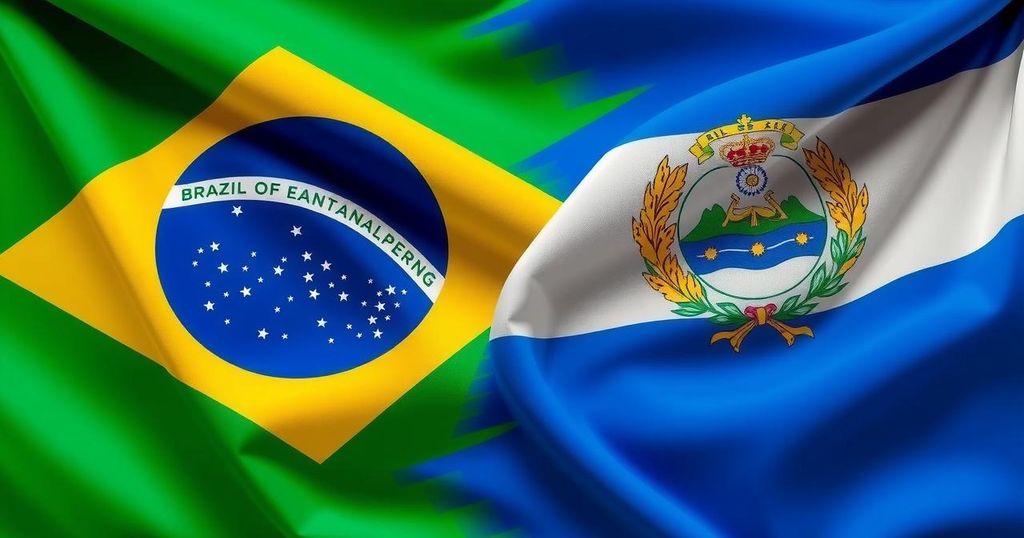Brazil and Uruguay: A New Alliance Against Rising Conservative Ideologies

Yamandú Orsi’s recent electoral victory in Uruguay is warmly received in Brazil as a strategic opportunity to counter the ideologies of Javier Milei in Argentina. Brazilian officials anticipate closer ties with Uruguay and Bolivia, proposing collaborative actions particularly within Mercosur. Aligned ideologies suggest a renewed political dialogue that could enhance regional unity against divisive elements in South America.
The recent electoral success of Yamandú Orsi in Uruguay has been met with enthusiastic responses from Brazilian officials, anticipating a more robust political dialogue between the two nations. As Brazil seeks to counter the ideologies propagated by Javier Milei in Argentina, the victory of Orsi represents a potential pivot towards greater political collaboration in South America. Insiders within the Brazilian government have expressed optimism regarding a renewed focus on joint initiatives, particularly within the framework of Mercosur, the South American trade bloc, which might lead to enhanced regional integration.
Significantly, Brazil’s President Luiz Inácio Lula da Silva was among the first to extend his congratulations to Orsi, reflecting the importance placed on this political alignment. As Brazil, Uruguay, and Bolivia, under President Luis Arce, converge towards a common ideological front against the wave of conservatism rising in Argentina, this coalition is expected to yield fruitful partnerships.
Brazilian diplomats have noted that with three out of five Mercosur member states potentially aligned against Milei’s policies, the bloc could take significant steps forward, albeit with Bolivia’s influence limited by its current political climate. Moreover, discussions suggest that Orsi may rely on former President José Mujica as a key advisor, enhancing continuity in progressive governance and strategic initiatives.
Looking beyond Mercosur, Brasília envisions strengthened cooperation through regional organizations, including the Community of Latin American and Caribbean States (CELAC) and initiatives stemming from the Brasília Consensus, an agenda introduced by Lula during his third term that seeks to unite regional efforts. With these developments, Brazil positions itself as a leading voice in South America, aiming to foster unity against divisive ideologies and enhance collective growth.
The political landscape in South America has been characterized by its ideological shifts, particularly with the rise of Javier Milei in Argentina, whose conservative approach poses challenges for left-leaning governments in the region. This context underscores the significance of Yamandú Orsi’s electoral victory in Uruguay, which has sparked hopes for stronger alliances among South American nations that share similar progressive values. Brazil, under President Lula, is eager to forge partnerships that could mitigate the influence of oppositional ideologies and promote collaborative efforts across political and economic fronts within the continent.
Yamandú Orsi’s victory denotes a promising shift in South American politics as Brazil explores strategic partnerships to counter conservative ideologies. With key players like Uruguay and Bolivia weighing in on collaborative actions in Mercosur and other regional organizations, this coalition could play a pivotal role in defining the continent’s political trajectory. The emphasis on unity and cooperation reflects an aspiration for resilient governance that champions progressive values amidst rising challenges.
Original Source: www1.folha.uol.com.br








